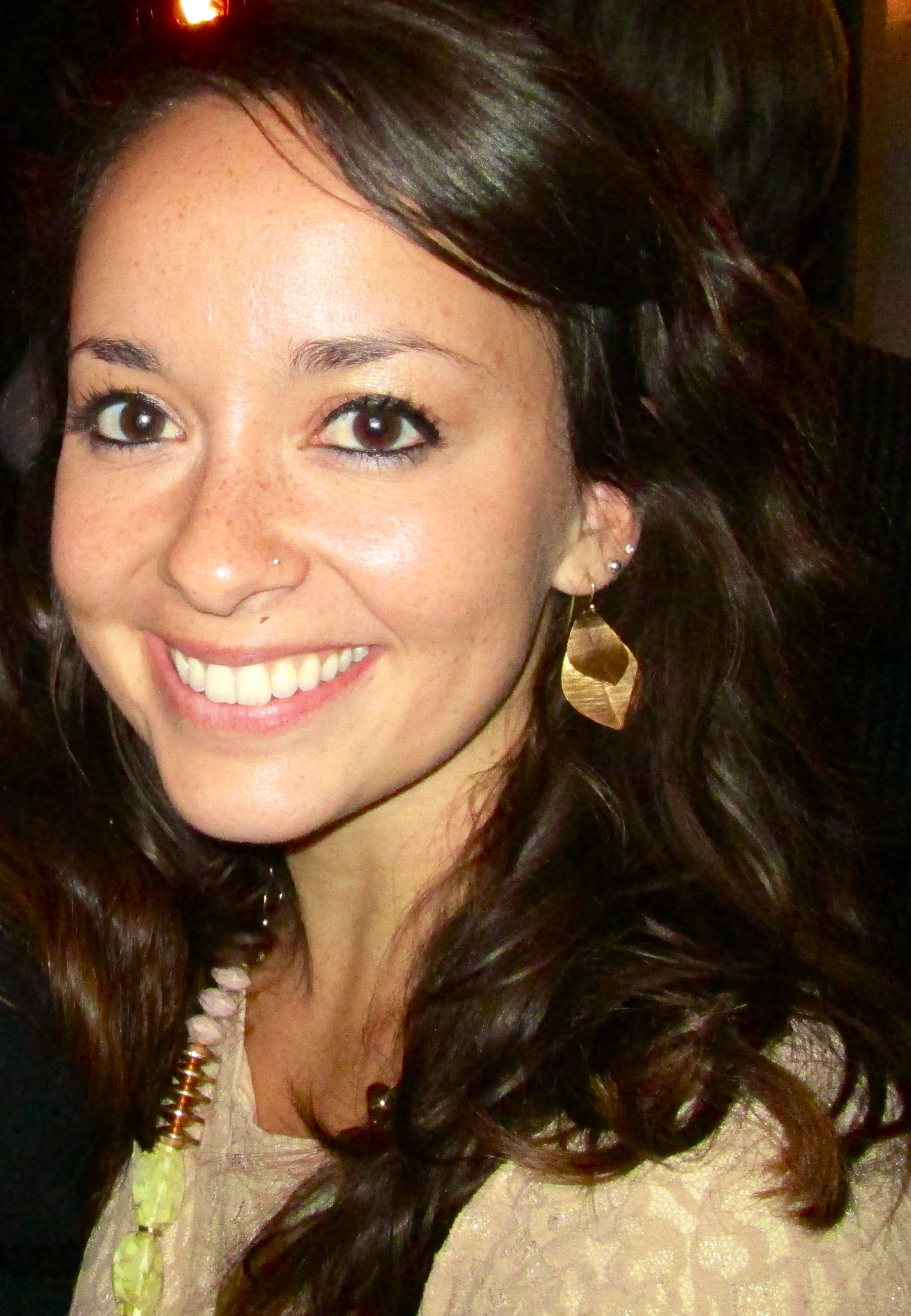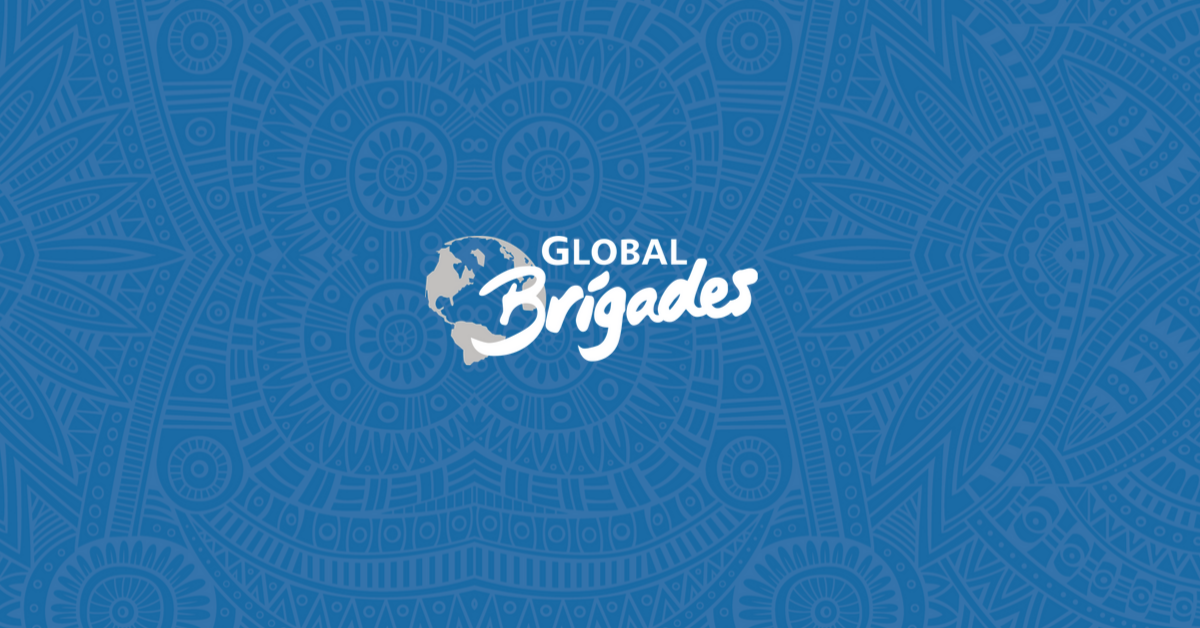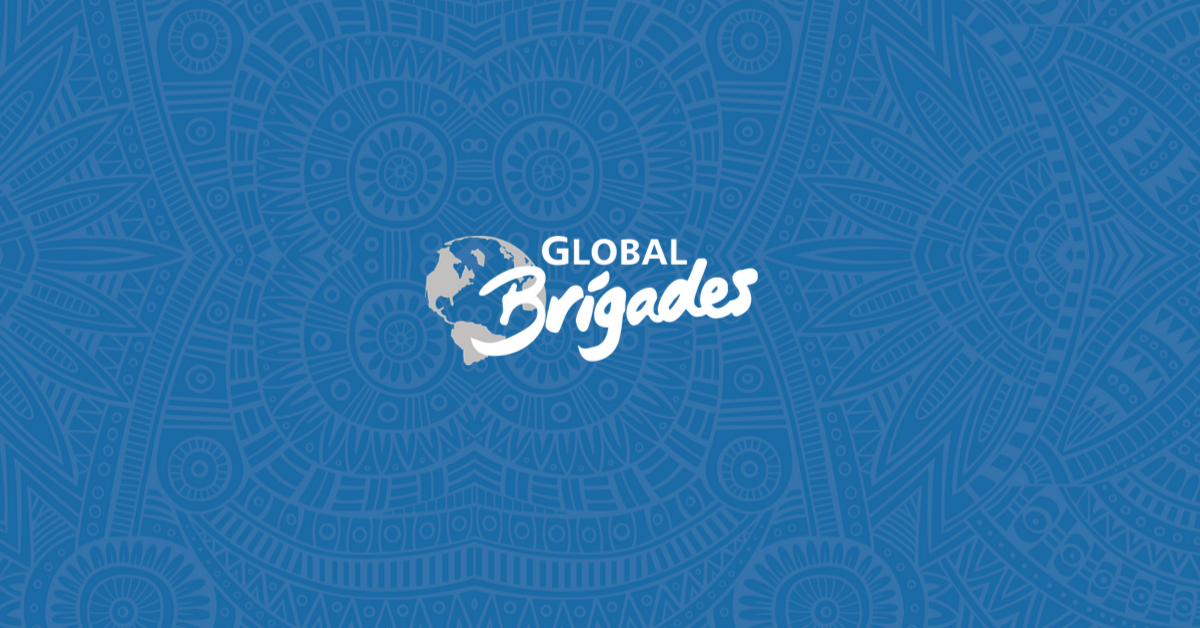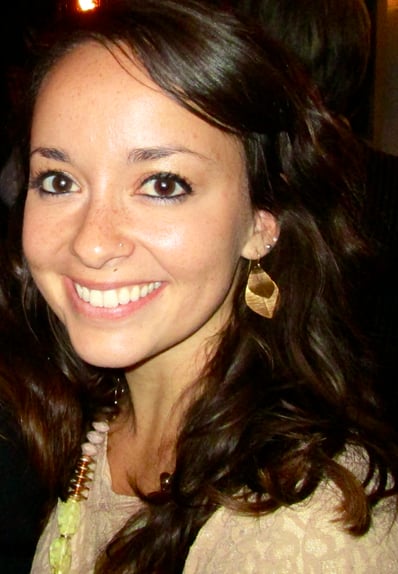 What is it like working for Global Brigades? Jackie Hyland worked with Global Brigades in Panama in a variety of programmatic and leadership roles and reflects on her experiences working with rural community members and on women’s empowerment initiatives. Jackie is currently living in Mexico City on a Fulbright Garcia-Robles grant in the Binational Business program
What is it like working for Global Brigades? Jackie Hyland worked with Global Brigades in Panama in a variety of programmatic and leadership roles and reflects on her experiences working with rural community members and on women’s empowerment initiatives. Jackie is currently living in Mexico City on a Fulbright Garcia-Robles grant in the Binational Business program
Sitting in a small gutted out tree boat with the architecture brigade lead and our two Guna Yala community member companions, we floated through the sandy water tunnels between walls of mangrove trees that drank in the salty Caribbean Sea water. As we reached the sea where we would begin to embark on reaching the Carti islands, I could see miles and miles of nothing but infinite pure blue ocean and tiny straw huts lining the horizon. I had only been in Panamá a month and remember thinking, “Is for real? Is this really my new job?”
Sitting in that boat in that small stream is how I felt before arriving to Panamá. Sure, I had studied abroad in Spain and Argentina before arriving and had done my fair share of traveling alone and seeing the world, but my perspective on international development and Latin America was still small, like that boat in a sandy water tunnel. It was after two and a half years in Global Brigades getting my hands-dirty, diving into books and articles, project implementation, design thinking, taking risks, asking a lot of questions, and messing up many times, that I began to see and understand a little bit of the Sea.
I arrived to Panama as a Travel Coordinator, a role that now doesn’t exist, but at the time was a great entryway into an international non-profit in Latin America. I coordinated flight logistics on the student side, getting to hear and feel their passionate about their trip, and because I spoke Spanish, was able to join as a translator to a few brigades during my first few months in country. I learned all the tricks and tips of airline flying, which, I must say has come VERY handy in these following years of travel and living abroad.
GB Panamá was barely a year old when I began working there, and even though I was heavily involved in U.S. side logistics, we all had to do a little bit of everything. From organizing club calls, flights, community visits, community follow-ups, evaluations, and brigade coordination, everyone was a very critical part of the team. Some people got lost in the disorganization. I flourished in it. As a recent grad I was so eager to learn, and in that situation I loved that even though nothing was 100% defined, everything was possible. I was able to see all the ins and outs of a new non-profit organization. It’s flaws, its intricacies, but also the rawness and realness of the heart behind the motor that made it all work. I met some of the most wonderful people that I still call dear friends, who, were not international development experts, but were sure to find you the answer or resource the next day if there ever was a question. It was like living in a real life classroom. We were constantly learning and deeply wrestling with the big questions about poverty, development, and our role as foreigners and volunteers.
Because of the smallness of the organization I was able to play many roles. I think out of all the Panama staff, my job title changed the most – about ten times (which shows the flexibility of the staff to get involved in what you really liked). From Travel Coordinator, I started to show a hunger to get more involved in projects and began to participate on community follow-up visits, create and strengthen new local partnerships, coordinate Business Brigades, train our temporary local staff, and by 2011, I was the Education and Training Lead, managing the education plans of all the programs as well as focusing on recruiting and training and strong force of on the ground local team, which I was very passionate about. I also had the fantastic opportunity to lead a brigade in every one of our medical, environmental, business and law programs.
Late 2010, I had the opportunity to pilot and found a program that spurred from my work in Business Brigades and my passion for women’s empowerment. I met with the Economic Officer of the U.S. Embassy at the time and he and I, along with the CEO of the GB Panamá, fleshed out Panamá’s first women’s economic empowerment mentoring program, La Red de Mentoras, a program dedicated to connecting businesswomen in rural towns and communities to successful businesswomen in Panama City. We received $20,000 from the U.S. State Department’s Pathways the Prosperity program and had 22 women participate over the course of nine months in 2011. Because of the program’s success, post 2011, another women’s empowerment organization, Vital Voices Panama chapter, decided to absorb the program, to expand into the rural parts of Panamá.
I was also very fascinated not only in the community impact we were having, but the kind of impact GB projects had on our college 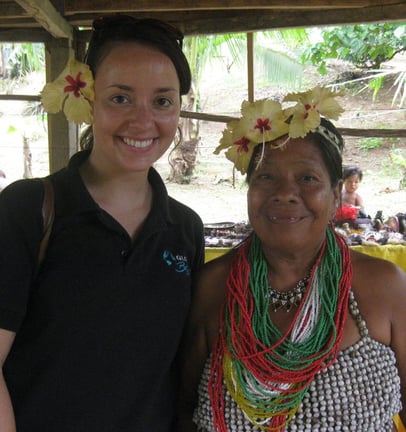 volunteers in Panamá. In January 2011, I was able to conduct a small survey on past Panama brigaders and submitted the findings and my abstract to the Columbia Earth Institute. They accepted my study for the 17th Annual International Sustainable Development Research Conference, in which I presented on my paper: Lifelong Sustainability:The Unique Experience of University Students in Rural Panama at Columbia University in New York, New York in May of that year. I saw international leaders from the U.N. and other universities speak on our pressing global issues, and had the honor to personally meet Jeffrey Sachs, Director of the Earth Institute at Columbia University.
volunteers in Panamá. In January 2011, I was able to conduct a small survey on past Panama brigaders and submitted the findings and my abstract to the Columbia Earth Institute. They accepted my study for the 17th Annual International Sustainable Development Research Conference, in which I presented on my paper: Lifelong Sustainability:The Unique Experience of University Students in Rural Panama at Columbia University in New York, New York in May of that year. I saw international leaders from the U.N. and other universities speak on our pressing global issues, and had the honor to personally meet Jeffrey Sachs, Director of the Earth Institute at Columbia University.
November 2011, the U.S. Embassy in Panamá also sent me to Santo Domingo, Dominican Republic, where I met other women doing similar programs all over Latin American. One of the highlights of my time with Global Brigades happened that weekend as well, I had the incredible opportunity to meet U.S. Secretary of State, Hilary Clinton. It was an incredible moment, all which spurred from a small meeting over coffee on business brigades in Panamá.
On international development, and the word development in and of itself can mean many things to many people. I learned that international development is never about “helping” or “giving” but contributing to a process of mutual learning, empowerment, assisting, facilitating, finding the local solutions from local leaders.
Global Brigades was the perfect transition for my career into international work after college. I was able to see, practice, and understand non-profit work on so many levels and a plus was that GB leadership was always very available. There are many, many places where that does not happen — where you are light years away from even speaking to the CEO or getting advice from the Executive Director. Here, you had the best of both worlds: accessible leadership and space to get involved in many different things.
After Global Brigades, I decided to stay in Panama City another six months, working with a new social enterprise and Earth Day event, Festival Abierto (www.festivalabierot.com). We organized one of the largest free Earth Day events-concerts in the city. I was the Partnership and Community manager and was recruited and hired exactly because of my connection to the non-profit world, understanding of Panamá culture, language skills, and my work in a startup non-profit. I also helped with the transition of La Red de Mentoras, to Vital Voices and helped them start their first rural localized program in Santiago, Veraguas. In May, I left Panamá and moved to Cusco, Peru to be a Project Coordinator with Amigos de las Americas on a community development and maternal health project for two months.
Then this past August, I moved to Mexico City, Mexico to begin a Fulbright Garcia-Robles grant in the Binational Business program. I work for Angel Ventures Mexico as a Project Analyst and take part-time MBA courses at the Instituto Tecnologico Autonomo de Mexico. It is the perfect combination of my new found passion of working with entrepreneurs as I had in Panamá with the business brigade program and La Red de Mentoras and impact investing. Before Panamá, I had zero interest in business. Post-GB Panamá, I saw how revolutionary business can be for communities even in the deepest corners of the world.
Global Brigades Panamá was an incredibly unique experience, one that most people do not get right out of college. It is not a structured desk job. Its flexible and unstructured, typically always changing. It allows you to see and be a part of a little bit of everything. One of the best parts (and sometimes most exhausting) is that at the end of the day, your biggest motivation is not just those in leadership above you, showing you have done a good job; it’s to the communities and the people you form such strong bonds with that your every detail depends on. Because you truly and deeply care about them, and your coworker’s work, you stay on that student or president call a little bit later, practice your Spanish for another hour, wake up for that 5 a.m. community visit and to go to bed at 11 p.m. writing the report of the day, and read and absorb all the literature you can on Panama, on international development, on volunteer work. Global Brigades Panamá was a great post-college step to step out of my tiny wooden boat perspective and jump into the ocean.

